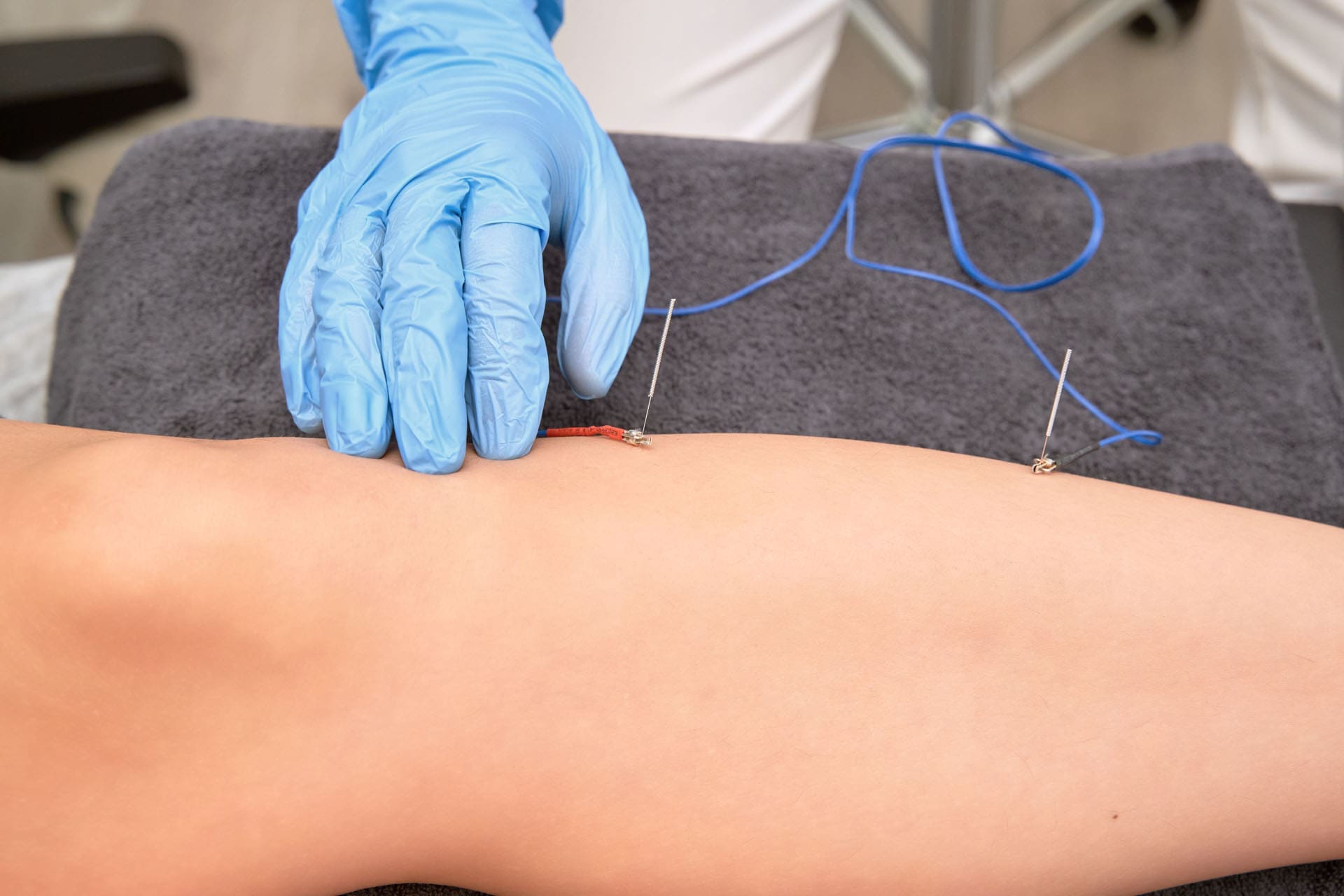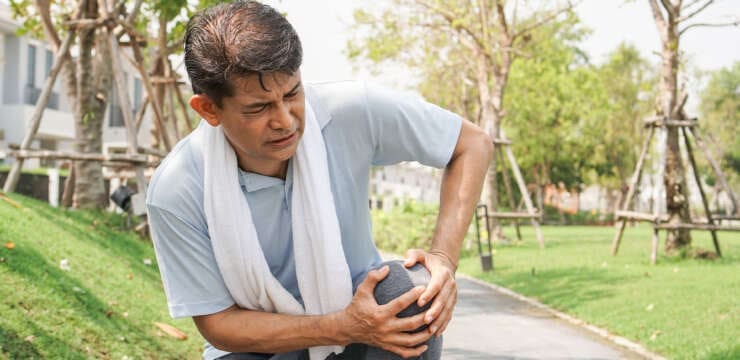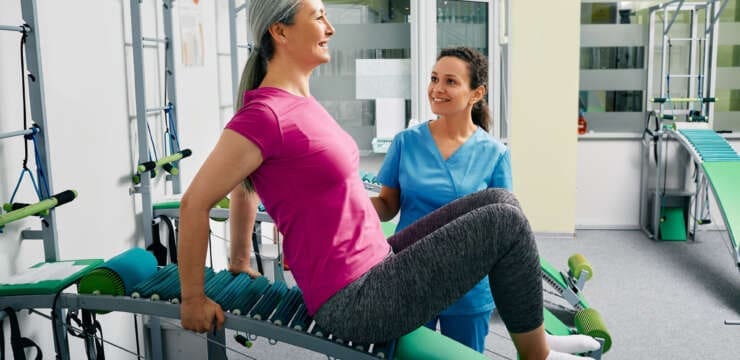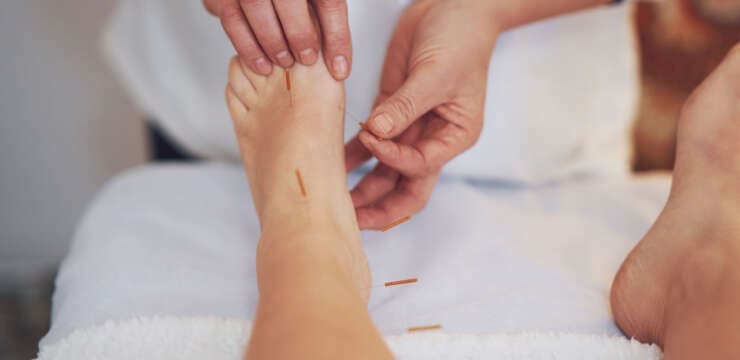
For individuals wanting to try acupuncture for various health conditions but aren’t sure?

Table of Contents
Is Acupuncture Painful?
Acupuncture is a procedure where extremely fine needles are inserted into pressure points in the body. A traditional Chinese medicine technique used to alleviate pain and enhance physical and emotional well-being. (Harvard Health, 2023) It can be beneficial for anyone dealing with persistent painful conditions, such as back pain, sciatica, arthritis-related discomfort, headaches, and post-surgery pain. It’s also a supportive option for individuals experiencing hot flashes and generalized inflammation, making it a versatile choice for holistic health. People undergoing acupuncture experience minimal pain, usually mild pressure or soreness during or after. However, choosing an experienced practitioner and communicating with them during the treatment is the best way to avoid increased pain.
When Performed Correctly, It Should Not Hurt
Many fear that acupuncture will be painful. However, this is not the case because the procedure uses extremely fine needles. One study of pediatric patients found that 87% reported minimal to no pain while having the treatment (Gold J. I. et al., 2023). Improper needle placement is one of the most common reasons that patients experience pain during or after treatment (Johns Hopkins Medicine, 2025). This is why it is important to be treated by a licensed practitioner who is well-versed in treating specific conditions.
Soreness After Treatment
It is relatively uncommon to experience pain after receiving acupuncture. About 10% of individuals experience minor soreness after the treatment (Kelly R. B. & Willis J. 2019). The soreness is typically felt in the areas where the needles were inserted.
Situations When Pain Can Present
A small group of those who undergo acupuncture may experience some pain. It is most frequently seen in the following: (Harvard Health, 2023)
- The acupuncturist is inexperienced and inserts the needle incorrectly or not in the right area.
- The needles are inserted more deeply than normal or with too much pressure.
- The patient has a lower pain threshold and/or is more sensitive to needles.
- The practitioner uses higher gauge/thicker needles.
It is important for individuals who have not had acupuncture before to discuss the procedure and any concerns with their provider beforehand. The acupuncturist may be able to perform a trial needle insertion to provide a preview of the treatment. During the initial session, they may use fewer needles or target a smaller area. Constantly communicate with the acupuncturist during the treatment. This allows them to adjust the needles causing soreness or discontinue the procedure if there is increased pain.
Acupuncture Process
Modern medicine explains acupuncture’s benefits. When the needles are inserted, they stimulate the release of endorphins, opioids, immune system cells, and neurohormones. These chemicals help reduce and relieve pain and modify how the body perceives it. They may also impact blood pressure, body temperature, and central nervous system function. (Harvard Health, 2023)
Pressure Points: Is Acupuncture Painful On Certain Body Parts?
Acupuncture can cause some increased soreness in certain body areas. This is especially true when needles are inserted into less muscle or fat regions. For example, hand or foot acupuncture can occasionally cause increased pain (Kaiser Permanente, 2021). Thin individuals with less soft tissue may also experience a stinging sensation as needles are inserted. Communication with the provider is the key to making the acupuncture sessions as comfortable as possible.
During A Session
The first acupuncture session may consist of the following:
- The practitioner goes over medical history and current symptoms.
- The practitioner examines the body and may also examine the tongue to assess for any present imbalances.
- The patient will lie or sit on a table.
- Sterilized needles are inserted into the affected areas one at a time.
- In some situations, heat or electrical stimulation may also be used to enhance its effects. (Johns Hopkins Medicine, 2025)
- A typical acupuncture session is about 20 to 30 minutes. (Kaiser Permanente, 2021)
Self-Care After Treatment
Most cases of soreness after treatment will resolve in one to three days. During this time, here are a few recommendations to alleviate any soreness symptoms:
- Apply ice to the areas of soreness.
- Gently stretch the sore areas.
- Increase fluid intake.
- Soak in a warm bath with Epsom salts or magnesium oil.
- Perform light aerobic exercise.
- Take over-the-counter anti-inflammatory medication if recommended by a physician. (University of Georgia, N.D.)
Find a Licensed Acupuncturist
Most states have an online directory of licensed acupuncturists that can help find a local provider. Some national acupuncture associations also maintain lists of members who are board-certified. For example, this directory searches for certified acupuncturists through the National Certification Commission for Acupuncture and Oriental Medicine. (National Certification Commission for Acupuncture and Oriental Medicine, 2024)
Injury Medical Chiropractic and Functional Medicine Clinic
Therefore, acupuncture is not painful and can help relieve symptoms such as anxiety, stress, pain, discomfort, tightness, and poor circulation. Injury Medical Chiropractic and Functional Medicine Clinic can help individuals recover and build optimal health and wellness solutions with primary healthcare providers and specialists. We focus on what works for you to relieve pain, restore function, prevent injury, and help mitigate issues through adjustments that help the body realign itself. They can also work with other medical professionals to integrate a treatment plan to resolve musculoskeletal problems.
Beyond Adjustments: Chiropractic and Integrative Healthcare
References
Harvard Health Publishing. (2023). Acupuncture. www.health.harvard.edu/a_to_z/acupuncture-a-to-z
Gold, J. I., Kobylecka, M., Ngo, N. H., Lin, C. T., & Hurray, C. N. (2023). Does Acupuncture Hurt? A Retrospective Study on Pain and Satisfaction during Pediatric Acupuncture. Children (Basel, Switzerland), 10(11), 1774. doi.org/10.3390/children10111774
Johns Hopkins Medicine. (2025). Acupuncture. www.hopkinsmedicine.org/health/wellness-and-prevention/acupuncture
Kelly, R. B., & Willis, J. (2019). Acupuncture for Pain. American family physician, 100(2), 89–96.
Kaiser Permanente. (2021). Acupuncture 101: here’s what you can expect. healthy.kaiserpermanente.org/health-wellness/healtharticle.acupuncture-101
University of Georgia. (N.D.). Dry needling. healthcenter.uga.edu/healthtopics/dryneedling/
National Certification Commission for Acupuncture and Oriental Medicine. (2024). Directory: Feel Confident About Finding a Qualified Practitioner. directory.nccaom.org/#
Disclaimers
Professional Scope of Practice *
The information herein on "Is Acupuncture Painful? Unveiling the Needle Sensation" is not intended to replace a one-on-one relationship with a qualified health care professional or licensed physician and is not medical advice. We encourage you to make healthcare decisions based on your research and partnership with a qualified healthcare professional.
Blog Information & Scope Discussions
Welcome to El Paso's wellness blog, where Dr. Alex Jimenez, DC, FNP-C, a board-certified Family Practice Nurse Practitioner (FNP-C) and Chiropractor (DC), presents insights on how our team is dedicated to holistic healing and personalized care. Our practice aligns with evidence-based treatment protocols inspired by integrative medicine principles, similar to those found on dralexjimenez.com, focusing on restoring health naturally for patients of all ages.
Our areas of chiropractic practice include Wellness & Nutrition, Chronic Pain, Personal Injury, Auto Accident Care, Work Injuries, Back Injury, Low Back Pain, Neck Pain, Migraine Headaches, Sports Injuries, Severe Sciatica, Scoliosis, Complex Herniated Discs, Fibromyalgia, Chronic Pain, Complex Injuries, Stress Management, Functional Medicine Treatments, and in-scope care protocols.
Our information scope is limited to chiropractic, musculoskeletal, physical medicine, wellness, contributing etiological viscerosomatic disturbances within clinical presentations, associated somato-visceral reflex clinical dynamics, subluxation complexes, sensitive health issues, and functional medicine articles, topics, and discussions.
We provide and present clinical collaboration with specialists from various disciplines. Each specialist is governed by their professional scope of practice and their jurisdiction of licensure. We use functional health & wellness protocols to treat and support care for the injuries or disorders of the musculoskeletal system.
Our videos, posts, topics, subjects, and insights cover clinical matters, issues, and topics that relate to and directly or indirectly support our clinical scope of practice.*
Our office has reasonably attempted to provide supportive citations and has identified the relevant research studies or studies supporting our posts. We provide copies of supporting research studies available to regulatory boards and the public upon request.
We understand that we cover matters that require an additional explanation of how they may assist in a particular care plan or treatment protocol; therefore, to discuss the subject matter above further, please feel free to ask Dr. Alex Jimenez, DC, APRN, FNP-BC, or contact us at 915-850-0900.
We are here to help you and your family.
Blessings
Dr. Alex Jimenez DC, MSACP, APRN, FNP-BC*, CCST, IFMCP, CFMP, ATN
email: coach@elpasofunctionalmedicine.com
Licensed as a Doctor of Chiropractic (DC) in Texas & New Mexico*
Texas DC License # TX5807
New Mexico DC License # NM-DC2182
Licensed as a Registered Nurse (RN*) in Texas & Multistate
Texas RN License # 1191402
ANCC FNP-BC: Board Certified Nurse Practitioner*
Compact Status: Multi-State License: Authorized to Practice in 40 States*
Graduate with Honors: ICHS: MSN-FNP (Family Nurse Practitioner Program)
Degree Granted. Master's in Family Practice MSN Diploma (Cum Laude)
Dr. Alex Jimenez, DC, APRN, FNP-BC*, CFMP, IFMCP, ATN, CCST
My Digital Business Card






